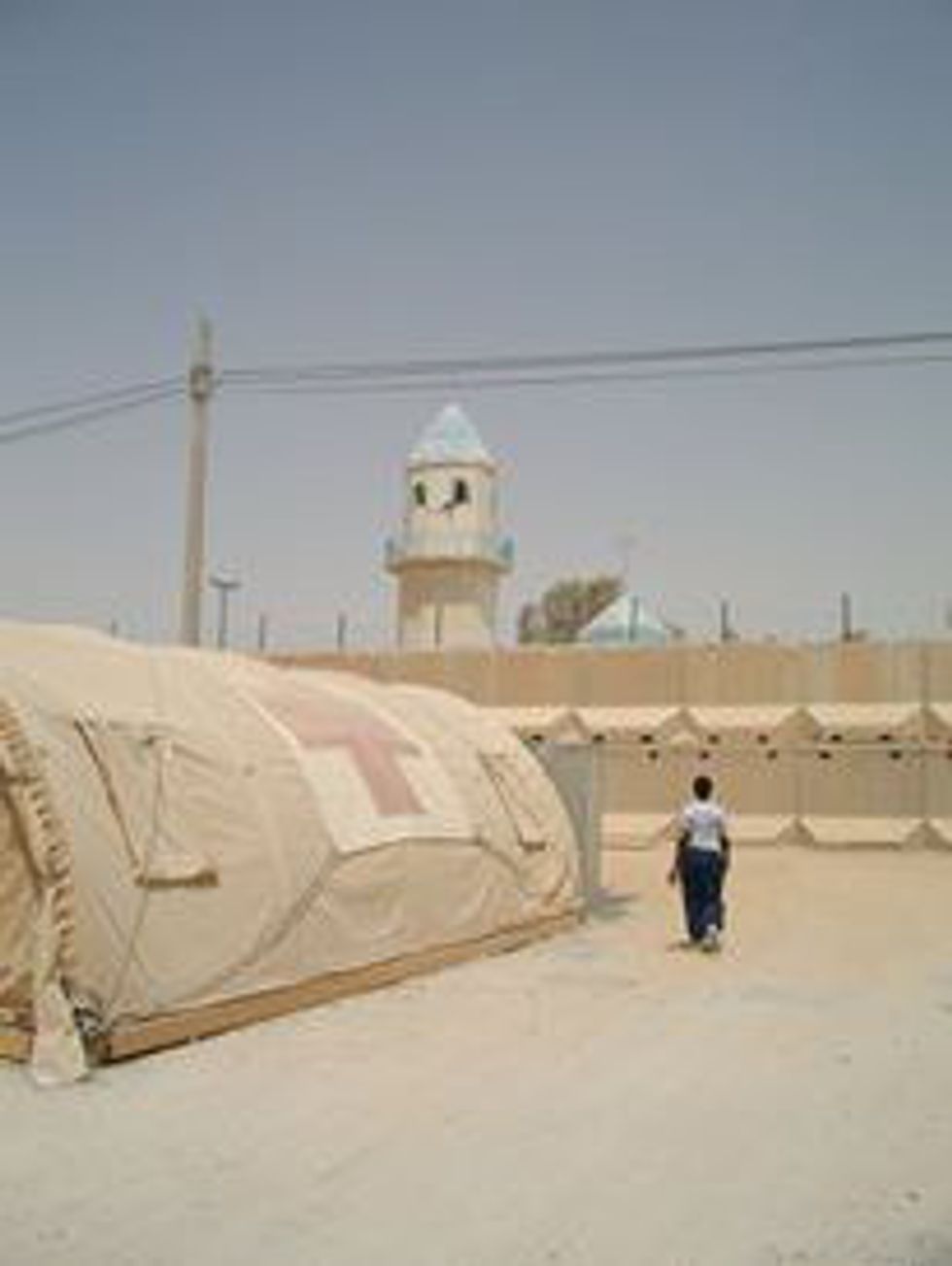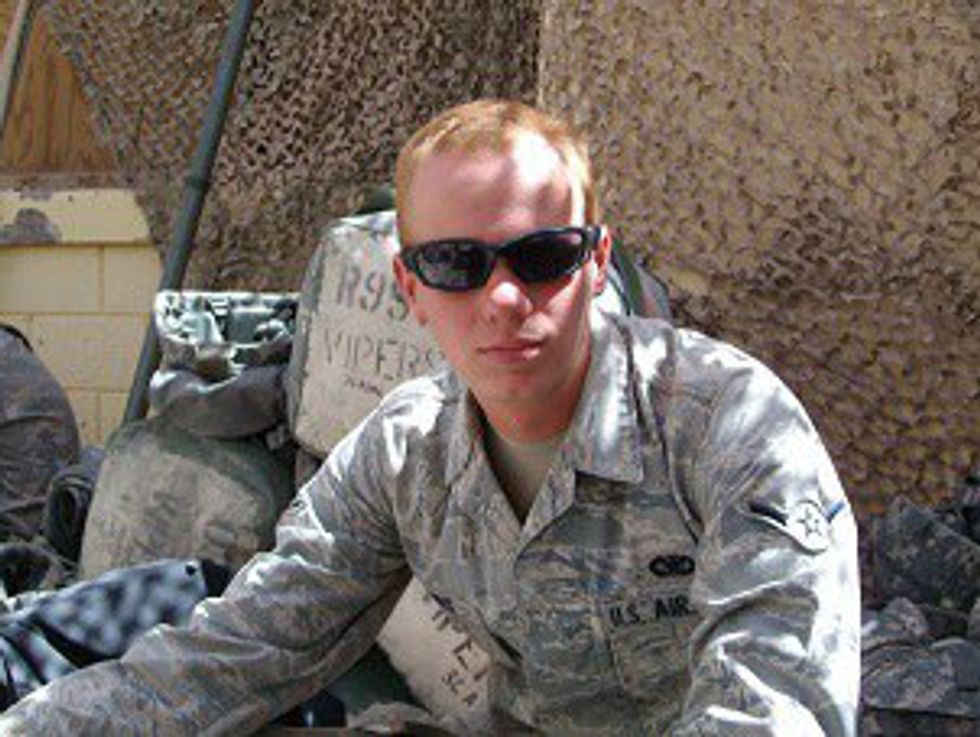For a small, private, liberal arts school, Saint Mary's has a relatively large number of veterans. One of the best reasons I can come up with for this is the school's support of the Yellow Ribbon Program, a program where the participating school provides a grant to eligible veterans to cover the cost of tuition beyond what the GI Bill provides. Saint Mary's offers this to 33 undergrads at a time and the grant and GI Bill together provide for the total cost of tuition ($11,595). For comparison, Stanford, while they offer unlimited grants, only provides $3000, most UC schools only seem to offer this program to graduate students in certain fields, and Cal State doesn't appear to participate in the program at all.
Just over 1% of Saint Mary's undergrads are veterans, which seems like a terribly small number until you account for the fact that these vets often begin their post-service schooling with a year or two of college already completed. So you probably won't find many vets in your freshman surveys, but take a look around your upper division classes and you'll find us. I've rarely found myself the only veteran in class. In my Theology and Religious Studies class last spring there were three that I knew of.
So how do you know who's a veteran? Is there some kind of secret signal we use to identify each other? A code word? Do we just have a 6th sense about this kind of thing? Actually, we kind of do, and those of us who were in for 10 years or more can usually make the ID within 5 minutes of meeting and correctly guess which branch within an hour. I'll break it down for you, because it's absolutely beneficial to you to be able to pick us out of a crowd.
Clue 1: Look for anyone over 25, especially if you attend an expensive school like Saint Mary's. Young people have parents to help with tuition and often have more scholarships options. If you have a classmate over 30, odds are that they're financially responsible for their own tuition. Ask yourself how a 30 year old can afford a private university. More often than not, it's their GI Bill.
Clue 2: How serious do they take their classes? Most veterans will approach school like it was their job, and essentially it is. We worked hard to earn those education benefits and we're not going to waste them. The vets will be on campus before class starts and stay well after their classes are done for the day. You'll find us in the library or any of the study rooms around campus. We generally appreciate the opportunity we have and don't want to waste our time getting C's. In the military "just enough" was never good enough. We were taught to excel and stand out from our peers and we continue that mentality in our education.
Clue 3: Are they taking advantage of the services offered on campus? Military members learned how to get every thing they could out of their benefits while on active duty and that doesn't change when we get out and go to school. You'll find us using the gym, consulting with the librarians, being evaluated by Student Disability Services, and getting help with our résumés.
Clue 4: Veterans know everyone. OK, maybe not everyone, but we're old pros at networking. If a vet doesn't know who can help you with an issue you have, we probably know a guy who knows a guy. As we advanced through the military ranks, our jobs became less doing a thing ourselves and more knowing who was the best at doing the thing. As an Air Force medic, I couldn't run a patient through a CT scanner, but you can bet I had the person who could on speed dial. You'll find a higher percentage of veterans than civilian students who have met the president of the university or who meet regularly with the heads of their departments. When the time came for me to look at graduate schools, I didn't just plunge into the waters alone; I emailed the professor who taught the subject I wanted to study and arranged a meeting. We're not shy about seeking our own mentors.
Clue 5: Veterans have a plan. Ask your classmates what they intend to do when they graduate and nine times out of ten, the veteran will be the one to lay out a 10 year plan. I had a spreadsheet of graduate schools I was considering that made the librarians proud. I had a ranking system and color coding to help narrow down my choices. And, yes, I have a 10 year plan. And a back up plan in case the first doesn't work out. It's important to have a contingency plan.
Clue 6: Listen to their word choice and phrasing. I was discovered by a Navy veteran because I used the phrase "Fake it 'til you make it." In a lab, if some one says "See one, do one, teach one," the odds are good they're a vet. Most of what you call a "gun," we call a "weapon." Artillery pieces are "guns" to us. The Navy uses "ships" not "boats" and the Air Force flys "jets." If we make a huge mistake, we'll describe how we "FUBAR'd." We occasionally tell time by "wake ups." As in: "It's only 3 more wake ups until Easter Recess."
As the US Armed Forces continue to reduce operations in the Middle East, they'll continue to reduce the size of the standing military. This means more veterans will be entering college as they return to their civilian lives. I've given you some pointers on how to identify student veterans in your classes, so check me out next week when I'll tell you why you should go out of your way to get to know these students.























